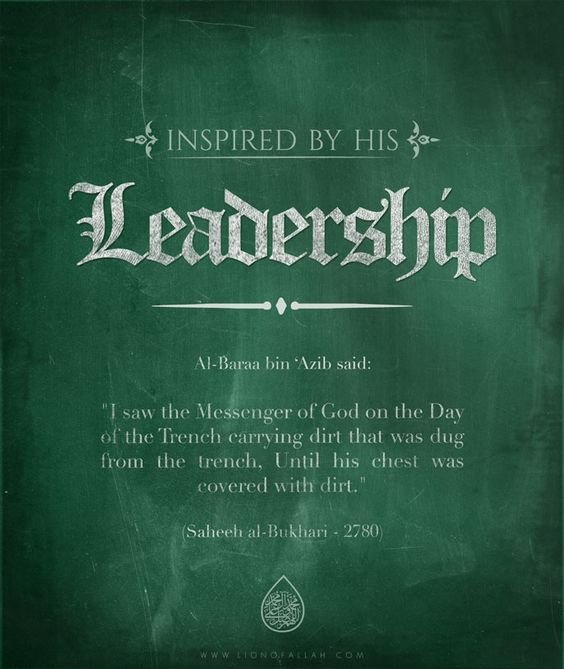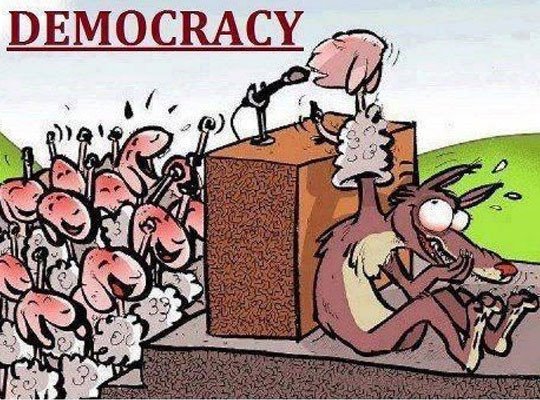Greetings to friends steemit users in around the world, may always be in the protection of God Almighty. Aaminn.
To start this new year, we want to give our friends some of the things we get from reading about "Leadership in Islam".

By not reducing respect for non-Muslim friends, this post is our goal for everyone without exception in the hope of being useful to anyone.
Hopefully the content contained in this post can be applied in everyday of life. Because each of us is a leader for ourselves, family and society in living the life of nation and humanity. That this is the least we can summarize from the leadership management theory in Islam.
Before going any further, we also want to apologize if the description is not clear enough to be understood. Maybe our effort to divert into English is not good enough, please understand.
This post contains:
- The basic theory, including: the nature of leadership, and the urgency of leadership.
- Its applications, including: leadership tasks, leadership functions, characteristics of effective leaders, requirements of leaders.
The Nature of Leadership
The nature of leadership in the view of Islam is a mandate that must be carried out properly and accounted not only in the world but also in the presence of God later in the hereafter. Leadership that is not professionally and proportionally done is a betrayal of God and His Apostle.
In the words of Prophet Muhammad SAW: "For who leads a business of the Muslims then he appoints someone when he finds a person more deserving of the Muslims' interest than that person, then he has betrayed Allah and His Messenger." (HR Hakim) .

Leadership should not be sought, let alone contested, except in certain circumstances for a wider purpose. The Messenger of Allah said:
"Surely I will not give this leadership to those who seek it, for indeed it is a trustworthiness and will bring suffering on the Day of Judgment."
The seizure and buying and selling of leadership is a proof of our lack of awareness to give birth to leaders who maintain the trust and benefit of the people. Everyone is a potential leader, but not everyone can be a leader, because of the heavy and complex responsibilities. Leaders still need correction and support from the ummah.
Urgency Of Leadership

In religious life leadership is a very urgent in achieving shared ideals. In managing a dynamic and interactive life is definitely required a leader who duty to carry out, guide and bring the work toward the achievement of common goals.
How very urgent the leadership, so the Prophet Muhammad SAW. instructs us to appoint a leader even in the smallest community and the goal is very simple. NAbi Muhammad SAW said: "If there are three of you out on a journey, then let them raise one of them a leader." (H.R. Abu Daud).
Another evidence of the urgency of leadership in Islam is the companions of the Prophet Muhammad prioritizes the problem of succession of leadership of Rasulullah SAW, than to take care of the burial of Rasulullah SAW. This means that in congregation there should be no leadership vacuum.
Tasks Of Leadership

The term used to refer to a leader in Islam and reflect his duties is as follows:
- Khalifah: etymologically means substitute or continuation of the duties of the Prophet Muhammad. The task of leadership in Islam is to continue the tasks of the message carried by the Prophet Muhammad.
- Imam: etymologically means followed and obeyed.
- Amier: the term amier means that is ordered or ordered. That a leader is a person who is ready to be ordered or told by the people, for their sake. The leader in Islam is serving the people not ministered to the people.
- Ra'in: the language is a shepherd, a leader's job is to keep, care for, and give full attention to the people.
- Qaa'id: language is a guide or guide. That a leader has the duty of claiming the people and their guidance to the right path that Allah approves.
Function Of Leadership

Leadership in Islam has strategic functions and operational functions.
The leader's strategic function as:
- The facilitator helps to achieve the goals and objectives of the jama'ah.
- Dynamicator that moves and pilot jama'ah toward the target to be achieved.
- Moral forces that are capable of maintaining congregational cohesion and resolving conflicts and possible disputes within the congregation.

The operational functions of the leader are as follows:
- Organizers who organize and manage relationships and attachments between individuals or groups that exist in the jama'ah.
- Able to manage the various potentials that exist in jama'ah to then be utilized to achieve the purpose of jama'ah.
- Administrators who maintain, organize and evaluate the results that have been achieved by jama'ah to achieve further goals.
Characteristics of Effective Leaders

As a leader will be effective in carrying out its duties, if it meets the following characteristics:
- Have a clear target and believe that he or she is capable of performing. By showing them strong efforts and strong motivations they will increase their enthusiasm, which ultimately increases the productivity of jama'ah.
- Calm and able to hold back, whatever a leader faces.
- Responsible, meaning that a leader must feel what it embodies is a mandate from his Lord and from the people, thus encouraging him to carry out his leadership well.
- Recognizing staff and members, this will have a profound effect on creating harmony in collaboration and will motivate members to work better and innovate.
- Sticky and innovative, meaning an effective leader must be quick and decisive in taking action.
- Provide exemplary.

Terms of Leader

To be a leader requires certain conditions in order to realize their duties and functions. The terms are:
- Have high moral integrity (amanah, siddiq, fair, and patient);
is a person who can be given full trust, his actions and words are in line and committed, treating the same rules to all people, having no personal desire to trade power, possessing a great soul and prestige and being able to control his passions and anger. - Has intellectual intelligence (fathanah, basthatan fil ilmi);
are people possessing extensive knowledge both in the field of religion, socio-culture, and other sciences that are required as leaders. - Communicative and interactive with others. (tabligh);
is a person capable of building communication that can build the spirit in building together. - Has an emotional intelligence and social sensitivity (azizun aaihi maa 'anittum, harisun alaikum, ro'uf rohiem);
is a person who has the ability to manage the emotional congregation of people and always pay attention to this as a matter that must be managed with the best. Because in the nation if the people do not feel the tranquility of their souls, then they will move by itself looking for peace and if not well managed will be a big problem in the nation. - Being physically perfect (basthatan fil jismi);
is a person who has a perfect physique as a human being, has no deficiencies or disabilities. - Have courage and responsibility (syaja'ah and sahamah);
is a man who has a brave soul and thereby assumes responsibility wholeheartedly. As a leader he is only afraid of God Almighty, zad who has power over all things. - Forged and trained with long life experiences. (tarbiyah and tajribah 'Aridhah);
is a person who comes from a mature process of custodialization, he is born from the guidance of people with integrity. He was formed as a "steel" to withstand all forms of tests, he was nurtured as a wall that is not afraid to withstand the current challenges of the world.

Finally, let's imagine what happens when all leaders have a characteristic and are selected for the criteria described above? So it all depends on the leader who is currently in charge of what kind of leadership. John C. Maxwell says "The value of a lasting leader will be measured by succession". Cadreization in carrying out regeneration tasks is one of the priorities that must be designed and executed as well as possible.
"The sincerity of the leader must be present in the regeneration process, those who are present should not be brought to the personal passions and desires and or certain groups. The vision of regeneration must be to achieve a future whose leaders are obedient to the law of god and exercise justice and commit to the benefit of mankind ."( Chairman of IPKW)
What do you think, any extra?
